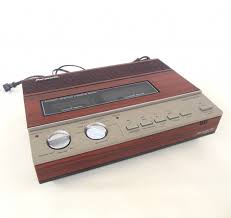Court Reporters Who Understand Customer Service
A recent poll of American CEOs found that mediocre service is the new standard in most customer service industries. It seems that there is a trend across industries that places more importance on getting customers to return than getting customers to leave happy. Said another way, many industries are focused on making sure that the customer is “satisfied” as opposed to “blown away”. Our concern is that court reporters have fallen into the same habit of delivering “satisfactory” rather than “exceptional” service.
What Does It Mean To Provide Exceptional Court Reporting Service?
Believe it or not, there is sometimes a disconnect between court reporters and attorneys as to what it means to provide exceptional customer service. Our informal polling found that most court reporters believe that “delivery of an accurate transcript” is the most important part of their job. Attorneys, on the other hand, expect nothing less than an accurate transcript. In other words, attorneys are merely satisfied if they are provided with an accurate transcript. Of course, the attorneys are correct, an accurate transcript should be the minimum provided by court reporters. It takes more to deliver exceptional customer service.
Accessibility.
We have found that the accessibility of our court reporters is critical to providing exceptional customer service. Accessibility means that attorneys can call our office and speak directly to a scheduling manager, a court reporter or a production specialist. If an attorney needs a copy of a transcript, they need to be able to locate the transcript as quickly as possible. Leaving a message on an answering machine is not an acceptable option for an attorney facing a filing deadline.
Many of our clients reside in California and occasionally travel to Louisville for depositions. Of course, California is three hours behind Kentucky. This means that an attorney from California who calls at 4:00 PST is actually calling at 7:00 EST. Due to the time differences, we make sure to have someone available to answer calls and emails 24 hours a day. Small firms often fail to have the staffing in place to answer after-hours calls. The last thing an attorney should have to worry about is whether their court reporter will actually be at their next deposition.
Flexibility.
Exceptional customer service means being flexible. We have heard many attorneys complain that they have to schedule their depositions around their court reporter’s calendar! We have hired a large staff of court reporters who can cover depositions at any time, on any day and at any location in Kentucky. If the only time your expert is available is 10 pm on a Saturday night, we will be there (and have been there). Kentuckiana Court Reporters believes that attorneys and their staff should be in charge of the deposition process. Just tell us when and where to go and we will be there!
Promptness.
Whatever happened to the old fashioned importance of being on time? We have heard of attorneys being forced to wait up to an hour for their court reporter to arrive. We know this is true because the attorneys eventually called us in as a replacement. We believe that being “on time” means arriving at a deposition at least 30 minutes early. Look, some experts charge upwards of $500 per hour. No matter how great your expert is, you do not want to pay $250 to drink coffee with them while waiting on a court reporter. Individually, our reporters are always on time. Moreover, we always have court reporters on standby in case you need to schedule a last minute deposition. The bottom line is that we make it out business to wait on you (not the other way around).
At Kentuckiana Court Reporters, we are striving to bring customer service back to the Louisville court reporting industry. When you schedule our court reporters, you can be sure that we will answer the phone, schedule the deposition around your schedule and show-up early. Give us a try and let us deliver exceptional court reporting service.
Defending the Kerosene Lamp: Stenographers’ Opposition to Digital Reporting.
As you read this article from your computer, please keep in mind that the technology you hold in your hands was almost branded as “too dangerous” to be used. In the late 1800s Thomas Edison and Andrew Carnegie were the pioneers in wiring the first homes in America with electricity, replacing kerosene lamps as America’s primary light source. While Edison and Carnegie were embarking upon this venture, John D. Rockefeller was deeply troubled. Rockefellar’s company, Standard Oil, sold kerosene to every American home. If electricity caught on then Rockefeller’s kerosene fortune would disappear. Rockefeller spent millions of dollars trying to convince Americans that electric lighting would electrocute their children. Thankfully, Rockefellar’s efforts were for naught and the new technology was safely adopted. The lesson is simple: people will often oppose the advance of technology when it is more profitable for them to keep American homes filled with kerosene lamps.
Today, the court reporting industry finds itself at a similar crossroads. The “Edisons” of the industry have developed and implemented digital court reporting equipment. This equipment uses sophisticated multi-channel audio recording equipment (with redundant back-up systems) to capture and annotate the audio from the deposition. Digital reporters also use specialized software that allows them to replay any question or testimony instantly. Most amazingly, digital reporting can be learned and perfected in as little as six months of training. On the other side of the aisle, the “Rockefellers” of the court reporting industry are the stenographers. Rather than capturing the audio, a stenographer attempts to type all of the testimony in short-hand. Her stenography machine then digitally records her short-hand code. This has its drawbacks as it is impossible for a stenographer to type two speakers simultaneously which digital reporters can do with ease. Stenographers are forced to either interrupt the deposition or miss out on testimony (or hide a tape recorder in their bag). Unlike digital reporting, a stenographer must complete two (2) to six (6) years of formal schooling to learn stenography. Stenographic schools are disappearing and severe shortages of stenographers are being projected by the National Court Reporters Association.
If you do not know much about the court reporting industry you are probably thinking, “Sounds like digital reporting would be willingly embraced to fill the shortage of stenographic reporters.” You are only partially correct. Digital reporting is growing in every market, but it has been aggressively opposed by stenographers who are trying to convince attorneys that digital reporting is too dangerous to use. One stenographer has even claimed that attorneys would be better off using a pen writer (someone who tries to write all of the testimony with a pencil) than a digital reporter. Their argument is that a digital reporter runs the risk of not capturing the audio of the deposition and would be left with only her annotations. This is a spurious argument and one that applies equally to stenographers. A digital reporter has multiple independent channels of audio recording. Her audio can be downloaded to the cloud in realtime (and saved to her laptop). As long as the digital reporter monitors her equipment, the record is guaranteed. Stenographers claim that they are “typing” the record and creating something more tangible and therefore more secure. However, very few stenographers actually type to paper. Instead, the stenographer’s key strokes are saved on a digital computer file. If a stenographer’s digital file is corrupted or lost then no record of the deposition will exist. In other words, the same risks faced by a digital reporter are inherent in the equipment used by stenographic reporters.
When faced with the reality that stenographic machines are simply recording shorthand instead of audio, stenographers retreat to arguing about anecdotal examples of digital reporting equipment failing. There have been examples of a courtroom administrator failing to turn-on the digital reporting equipment during a trial. Obviously, such examples (always in a courtroom setting) occur because a court official failed to use the equipment properly or even monitor it. There was nothing inherently wrong with the equipment. Moreover, there are thousands of courtrooms utilizing digital reporters. Here in Kentucky, virtually every courtroom has been digital for over twenty years. Pointing out a handful of mistakes actually proves how reliable the technology has been. If it was as troublesome as suggested by its opponents then our court system would literally be mired in gridlock. The reality is that it just has not happened.
Stenographers, on the other hand, have caused their fair-share of errors. On January 2, 2012, ABC News reported that in Florida, Randy Chaviano’s murder conviction was overturned because the stenographer had “erased the entire transcript of his murder trial.” Similarly, the Omaha World-Herald reported on June 11, 2012 that convicted child molester Charles Kay would get a new trial due to stenographic errors. The stenographer in that case, Emilie Pavon, filed an official record that listed thirteen jurors instead of twelve, listed the judge’s and prosecutor’s names incorrectly, was missing numerous pages, and even listed the defense attorney as appearing on behalf of the State of Nebraska.
Please keep in mind that the point of this article is not to undermine the stenography profession. Stenographers are an effective and accurate means of maintaining the record. The point is simply that their equipment and practice is susceptible to the same potential problems of digital reporters. The question for attorneys should not be one of digital versus stenographic but should instead be, Do I have a good reporter?
Kentuckiana uses both stenographers and digital reporters. Both have unique skills and can provide accurate transcripts. Only a stenographer can provide realtime reporting. Only a digital can record multiple speakers simultaneously without interruption. The legal community should embrace both forms of reporting without caving into scare tactics about potentially losing a record. People who are disparaging digital reporting (and advocating the use of pencils) are doing so in order to control the market and increase the cost of court reporting.
We are all fortunate that John Rockefeller’s attempt to frighten Americans into using kerosene instead of electricity failed. Likewise, let us hope that a few stenographers will not scare the legal community into trading-in their laptops for No. 2 pencils.
Is your court reporter an industry leader or a copycat?
A famous English cleric, Charles Caleb Colton, first said that “imitation is the sincerest form of flatteryâ€. While Colton lived in the Eighteenth Century, his words still ring true in today’s business world. A world in which many are constantly imitating and trying to catch up to industry leaders. This situation is uniquely true in the world of court reporting, where industry leaders are frequently copied but rarely duplicated.
It is, of course, a tribute to the success of individuals or companies when others copy them. In business, small companies will often copy market leaders, aspiring to have their level of success. In reality, this rarely happens, as it is the research, development, innovation and investment that creates the market leaders in the first place, and by the time others try to copy and catch-up, market leaders will already have moved on.
Kentuckiana Reporters was established in 1975 and has continually grown since that time. We were the first in Louisville to introduce multimedia CDs that synchronized deposition text to the videographer’s video. We were so far ahead of our time that the Jefferson County courtrooms are only now catching-up and installing the JCUP trial presentation equipment to utilize our trial-ready CDs (a project which we proudly sponsor).
We were the first in the market to utilize digital court reporters to reduce costs while maintaining quality. One small competitor reacted by attacking us, claiming that attorneys should only use stenographers (someone who writes in digital code) or pen writers (reporters who use ink pens). We believe that a mix of both stenographers and digital reporters is the best way to serve a broad client base. Â Sure enough, it has been five years since adding digital and we are serving more clients than ever while delivering transcripts in industry-leading turn-around times. It turns out that many attorneys are, like the rest of us, cost conscious and focused on results. We stand by our results. We’ve even challenged our competitors to head-to-head deposition contests in order to see which method is more accurate. Those outspoken opponents, well, they’ve run from our challenge.
Imitation might be the sincerest form of flattery but in business it can be a dangerous game…especially for the customer. Imagine if your suppliers simply copied products from the market leaders without the vision, innovation or investment to “paddle their own canoeâ€. Your business will always trail behind your competitors who put their trust in those visionary companies who do invest, who do innovate, and who do lead the market.
Competitors have been quick to steal our marketing language by claiming to be a “full service firm”. They do this without embracing the requirements of the label. Kentuckiana has a full-time staff which includes a scheduling coordinator, production manager, transcript manager, trial presentation specialist, client concierge and an office manager who is available 24 hours a day to address any problem you might have. That stands in sharp contrast to court reporters working from their garage with no support staff while claiming to be “full service”. Look beyond the labels and make sure you are really getting your money’s worth. Providing “full service” across the region means providing for all of your court reporting and videography needs whether your deposition is in Hickman, KY, Pikeville, KY, Cincinnati, OH or anywhere in the Ohio Valley. It also means that you never have to leave a message or ask your court reporter if their schedule will accommodate your needs. “Full service” means providing complimentary conference rooms in Louisville, Lexington, Cincinnati, Indianapolis and London. “Full service” means partnering with industry leaders to provide court reporters for you anywhere in world. The next time a reporter claims to be “full service”, make sure they don’t actually mean “working from the garage”.
At Kentuckiana, we have continued to strengthen our position as a market leader. By developing reporting packages uniquely tailored to our client’s needs, we have been able to save local attorneys thousands of dollars in transcript costs while delivering an accurate transcript faster than ever before. And we’re investing in the future – in new technology, innovation, new databases and better ways of doing business. Think carefully about court reporters who simply imitate our slogans and follow our lead. While as market leaders, we appreciate the flattery, if you want your business to stay ahead of the game – instead of playing catch-up – perhaps the wisest move is to team up with those court reporters who do lead from the front.
Choosing a Court Reporter: 101
What Law School Didn’t Teach You
During a deposition last month, I had the fortunate opportunity to be the reporter on a young attorney’s first ever deposition. I asked the young man why he chose our reporting firm over the many other options available in Louisville. (Admittedly, I was hoping to hear some high praise about our company but was surprised to learn he had no real input in the process.) Instead, he informed me that he had no idea how to schedule a deposition or a court reporter, had no idea what reporters really do, and was just focused on the substance of the questions he was going to ask. Accordingly, he asked a secretary in his office to set up the deposition for him. Had he asked a different secretary, I thought, I probably would not have even been scheduled. The reality is that “Choosing a Court Reporter: 101†is not taught in law school.
While most of you have been taking depositions for quite some time, you know as well as I do that our industry is rapidly evolving, so let’s evaluate what is important in choosing your court reporter. Keep in mind there are different types of reporters with different technological capabilities. As a litigator, consider the type of case you are handling, your client’s budget, and your courtroom strategy when choosing a reporting format. Evaluate each court reporting firm’s technical abilities and its production department. Ask good questions, like, does the firm have both stenographic and digital court reporters? Full disclosure: I am a digital reporter and have the utmost respect for stenographers (like my boss). My purpose is to explore the advantages of both.
Evolution of Court Reporting
Over the millennia, court reporting has evolved from scribes to shorthand, shorthand to stenography, and now stenography to digital court reporting. Both stenographic and digital court reporters have different capabilities. The best way to explain the differences between the two is to first define stenographic court reporting.
Stenography works by using a specialized machine to phonetically record speech. In other words, a stenographic reporter writes testimony in a shorthand code (so as to type more quickly) and her machine will translate most of that code into readable English. Keep in mind that no stenographer is capable of typing the speech of two people simultaneously and must interrupt the speakers or choose which speaker to follow. It is also true that even the best stenographer is incapable of catching every word. That is why they rely on audio back-up to proof their work.
Stenographers offer some services that digital reporters cannot. For example, stenographers can provide real-time court reporting services that allow the attorneys to read the transcript during the deposition. The best analogy would be that of closed captioning. Like the words you see across the bottom of your television screen, a qualified realtime reporter can put the deponent’s words directly onto a laptop or tablet for your viewing while the deposition occurs. It is not a perfect transcript, but it serves as an accurate rough draft to utilize as the deposition proceeds. This service is justifiably more expensive as it requires substantial training on the part of the reporter. It can also require a realtime scopist (the individual who corrects machine translation errors) who is off-site and assists as the deposition is streamed to her location. Realtime is crucial in many complex litigation cases. It is rarely needed for simple car wreck claims or other types of straight-forward personal injury suits.
Usually paid per transcript page, stenographers may not want to take short depositions, like workers’ comp depositions, because fewer pages translate to lower per-day earnings. Likewise, there is an economic disincentive for stenographers to travel long distances to depositions unless they charge high appearance fees.
The Affordability of Digital Reporters
A digital reporter uses modern recording equipment to capture multiple recordings of the testimony while annotating the proceedings. The reporter’s annotations are time-linked to the corresponding audio so that one can instantly go to that point in the record and re-listen to the actual testimony in realtime. Multiple audio recordings are taken simultaneously and can be downloaded to secure cloud servers in realtime. When the deposition is complete, the audio and annotations are given to professional transcriptionists. The transcript is then proofed twice, once by a proof reader and usually once again by the production department. Such a system is faster, is usually error-free, and less expensive.
Digital reporters rarely, if ever, need to instruct speakers to slow down their speech due to accent, or because complex medical or technical terminology is being used. The recording process captures the words exactly as spoken so the transcriptionist can slowly review for verbatim accuracy after the deposition instead of during the deposition. Because each speaker has a separate microphone, a digital reporter does not need to interrupt the proceeding when more than one person is speaking at the same time. Instead, both can be recorded at the same time.
Most electronic reporters are hourly or salary employees. As a result, digital reporters are often a much more affordable choice for short depositions and those that require travel
Secure Storage and Synchronization
Both a stenographer and digital reporter can and should take advantage of the numerous online applications which allow their data to be downloaded to a secure server as the deposition proceeds. This is absolutely critical. Earlier this year a Florida man convicted of murder and sentenced to life in prison was given a new trial because the stenographic courtroom reporter had accidentally deleted her copy of the courtroom transcripts prior to appeal. This is the danger that comes with any reporter who only saves their work to a desktop. Downloading to a cloud-based server ensures an accurate record is preserved. Let’s face it, there are numerous instances of stenographic machines breaking or being damaged (just like digital machines can), and the only way to ensure the shorthand notes and audio is preserved is to download as soon as possible. A secure hard drive and cloud server virtually guarantees that a record is preserved in perpetuity.
Court reporters can now synchronize the audio and video from a deposition to their transcribed text. These services allow attorneys to play back the video of the deponent at trial and have the deponent’s testimony appear in writing across the bottom of the screen. Even if video is not taken, the jury can still hear the deponent’s testimony from the reporter’s recording. Jurors are then able to hear the speaker’s tone of voice which often reveals more than the actual words spoken. Both stenographic and digital reporters are capable of implementing this technology, but not all have done so.
In the legal workplace, technological advances are assisting us in achieving goals of greater efficiency, reliability and reduced costs. A more fair and just trial can be had with interactive monitors and projectors. As Judge McKay Chauvin puts it, “We’re seeing more and more of our juries comprised of millennials who are audio and visually oriented.†Kentucky’s courtrooms have been on the cutting edge of such advances by implementing synchronized digital court reporting systems in the vast majority of our courtrooms. The LBA has raised over $400,000 to upgrade Jefferson County’s Circuit Courts and further take advantage of the benefits provided by digital court reporting and synchronization. While touted by Judge Chauvin as “the most technologically advanced courtroom with integrative technology in the United States,†litigation attorneys can only take advantage of this new courtroom if they choose a reporter who can create a synchronized CD which can play a deponent’s voice and video along with the text of the deposition.
Educate yourself about reporting options and choose a firm or reporter who can supply you with the tools needed to be successful at trial. In the meantime, I will be tracking down and thanking the secretary who referred the young attorney.
Ten quick questions that every trial lawyer should ask their reporter (and get a “yes”):
(1) Do you offer both digital and stenographic reporting?
(2) Is each transcript reviewed by an independent proof reader prior to production?
(3) Do you store shorthand notes and audio on a secure server and a secure cloud server?
(4) Do you provide DVDs with the audio/video synchronized to the text?
(5) Are your DVDs compatible with the new Jefferson County courtroom technology?
(6) Do you travel within the state for no extra charge?
(7) Is scheduling available 24 hours per day?
(8) Do you have a production department which can assist with courtroom technology issues?
(9) Can you produce a transcript within a week for no extra charge?
(10) Do you offer realtime reporting services?





